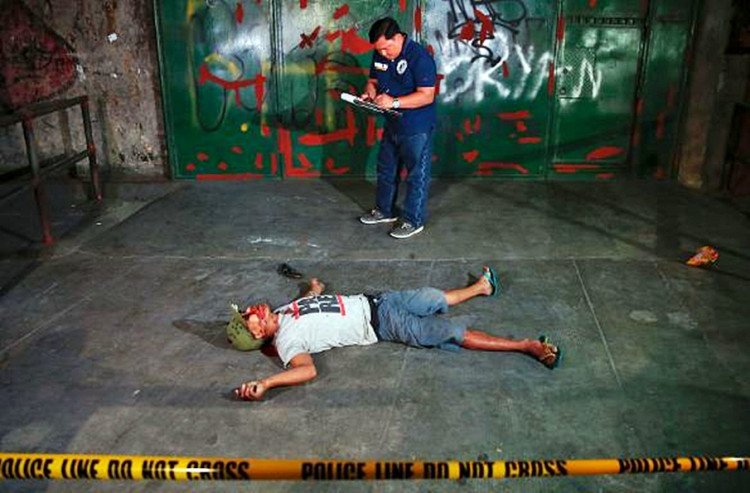The slaughter of more than 27,000 Filipinos by Philippine police and allied vigilantes is being cited as proof the United Nations' approach to eradicating the world's illegal drug market is a resounding failure.
The International Drug Policy Consortium (IDPC) made this shocking claim in its new report, "Taking stock: A decade of drug policy." IDPC is a network of 174 NGOs that promote objective and open debate on drug policy at national, regional and international levels. Based in London, IDPC supports evidence-based policies that are effective at reducing drug-related harm.
To come to its conclusion, IDPC evaluated the UN Office of Drug and Crime's 10-year plan to combat the international illegal drug market. It said the UN plan continues to generate a "catastrophic impact" on health, human rights, security, and development. Worse, this UN campaign has not even remotely reduced the global supply of illegal drugs.
The IDPC report said there had been a 145 percent jump in drug-related deaths over the last decade. These deaths reached a peak of 450,000 deaths in 2015.
At least 3,940 people were executed for drug offenses in 2017, said IDPC. The report said drug-related deaths skyrocketed by 145% over the last decade, with more than 71,000 overdose deaths in the United States in 2017 alone.
There was also a 130 percent increase in the cultivation of opium poppies; a 34 percent rise in the coca bush production and no sign of a reduction in growing cannabis or marijuana. The UN plan has a specific aim of eliminating or reducing the "illicit cultivation of opium poppy, coca bush, and cannabis plant."
The report says its data "illustrates the carnage that the war on drugs has wreaked over the past decade." It cited the horrific murders in the Philippines, which were abetted by Philippine president Rodrigo Duterte as part of his failed war on drugs. The Philippine drug war began in July 2016.
Duterte originally boasted he'd end the drug menace in the Philippines in only three months. The three months came and went without an end to the drug war. Duterte then asked for three more months and promised he'd willingly face a firing squad if he failed. The drug menace is alive and growing in the Philippines. Duterte remains alive, as well.
IDPC noted the main drug used worldwide is marijuana. The next most popular are opioids and amphetamines. Consumption of the latter jumped 136 percent over the last decade.
This report is another nail in the coffin for the war on drugs, said Ann Fordham, IDPC executive director.
IDPC is goading the UN General Assembly Special Session on Drugs to consider a different approach to its anti-drugs strategy for the next 10 years in advance of the March 2019 summit in Vienna, Austria.
The fact governments and the UN don't properly evaluate the disastrous impact of the last 10 years of drug policy, is depressing but unsurprising, said IDPC.
IDPC said governments will meet in March 2019 at the UN and will likely rubber-stamp more of the same for the next decade in drug policy. This will be a gross dereliction of duty, and a recipe for more blood spilled in the name of drug control.
The report also said punitive drug policies focusing on eradicating the illegal drug market have resulted in massive human rights violations. Mass jailings fuelled by the criminalization of those who use drugs means one in five prisoners is jailed for drug offenses. Most of those imprisoned were locked-up for possession for personal use.






